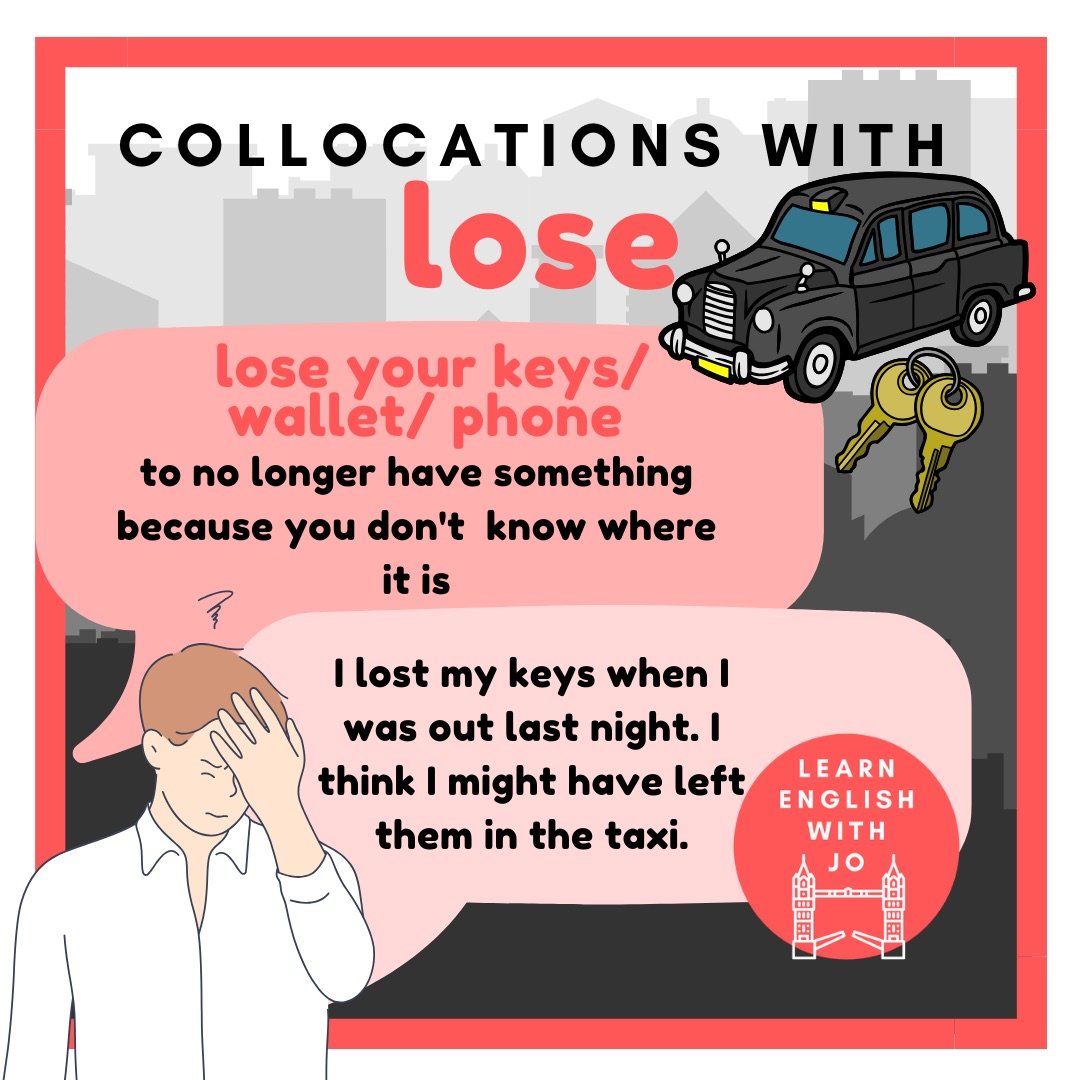English Collocations with Lose
In English language, certain words often go together and form a fixed expression. These word combinations, known as collocations, have a particular meaning that is often different from the separate words. One such word that forms several interesting collocations is "lose." Let's explore some of these common collocations, their meanings, and examples of their usage
Lose Your Temper
When you 'lose your temper,' you become very angry. It's as if you can't control your anger anymore. For instance, "When I discovered that my husband had forgotten to feed the dog yet again, I lost my temper."
Lose Weight
The phrase 'lose weight' means to become lighter or to reduce your body weight. This is often associated with a change in diet or lifestyle, as in the sentence, "The best way to lose weight is to do it slowly by making small, sustainable changes to your eating habits."
Lose Consciousness
'Lose consciousness' implies blacking out, becoming unconscious, or losing awareness. For example, "When she fainted, she briefly lost consciousness."
Lose Your Job
When you 'lose your job,' it means you have been fired or made redundant. It's a situation everyone dreads, as the sentence illustrates, "Last month I lost my job and now I’m desperately trying to find a new position."
Lose Your Keys/Wallet/Phone
To 'lose your keys/wallet/phone' means to no longer have something because you don't know where it is. An example would be, "I lost my keys when I was out last night. I think I might have left them in the taxi."
Lose the Match/Fight/Game
This phrase is used when you do not succeed in a competitive situation because someone does better than you and defeats you. Example, "Real Madrid lose first La Liga game of season at Rayo Vallecano."
Lose Track of Time
When you 'lose track of time', you don't realize what time it is, often because you're engrossed in something. For instance, "He completely lost track of time at work and had to rush to pick up the kids from school."
Lose Yourself In
To 'lose yourself in something,' such as music, a book, a relationship, or a hobby, means to become so interested in it that it takes all your attention. Like, "When I go on holiday I love to lay by the pool and lose myself in a good book."
Lose Sight Of
When you 'lose sight of' something, you fail to consider, be aware of, or remember it. It's often used when someone forgets their original purpose or intention, as in, "She lost sight of what was really important in her pursuit of fame and fortune."
Lose Somebody
'Lose somebody' is a phrase used to describe the experience of the death of someone you care about. Example, "I lost my mum to cancer this year and it's really hit me hard."
These are just some of the many collocations with 'lose'. Understanding these will not only enrich your vocabulary but also make your English more natural and fluent.










